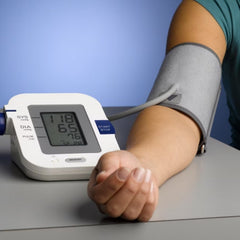Is Your Kidney Health on Track? Assess Renal Function Quickly with These 5 Key Tests
Table of Contents:
- Understanding Nephritis: A Common Renal Disorder
- Five Key Indicators to Evaluate Kidney Function
- Blood Glucose: Normal Range 3.9–6.1 mmol/L
- Blood Pressure: Ideal Reading 120/80 mmHg
- Urine Protein: Less Than 150 mg in 24 Hours
- Urine pH: Normal Range 4.6–8.0
- Creatinine: Male 10.0–24.0 mg/dL, Female 8.0–18.0 mg/dL
- Three High-Risk Groups That Require Extra Renal Protection
- FAQs about Kidney
The kidneys are vital detoxifying organs in the human body, responsible for filtering waste products and excess fluids from the blood. When the kidneys malfunction, it can disrupt fluid balance throughout the body, leading to the accumulation of toxins and waste—potentially resulting in serious health consequences.

Understanding Nephritis: A Common Renal Disorder
Nephritis, or kidney inflammation, is a frequently encountered renal condition. It is associated with factors such as hypertension, high blood sugar, infections, and immune system dysfunction. Common symptoms include foamy urine, hematuria (blood in urine), swelling of the eyelids and lower limbs, lower back pain, and fatigue.
In its early stages, nephritis often presents with subtle or non-specific symptoms, making it easy to overlook. By the time noticeable signs appear, structural and functional kidney damage may already have occurred—damage that is often difficult to fully reverse even with appropriate treatment.
Compromised kidney function can also exacerbate or trigger other conditions such as anemia, liver dysfunction, cardiovascular disease, and osteoporosis. These complications can pose serious threats to overall health and reduce life expectancy.
Maintaining kidney health is fundamental to overall well-being. Fortunately, several routine clinical indicators can help evaluate renal function and provide an early warning of potential kidney issues.
Five Key Indicators to Evaluate Kidney Function
Blood Glucose: Normal Range 3.9–6.1 mmol/L
While blood glucose is commonly used to diagnose diabetes, elevated blood sugar is also a significant risk factor for kidney disease. Fasting blood glucose in healthy adults should remain between 3.9 and 6.1 mmol/L, and postprandial (2-hour) blood glucose should be below 7.8 mmol/L. Levels above 7.0 mmol/L (fasting) or 11.1 mmol/L (2-hour) may indicate diabetes.
Chronic hyperglycemia can damage the glomeruli (the kidney's filtering units), leading to abnormal findings such as proteinuria, foamy urine, or hematuria. These are hallmark signs of diabetic nephropathy, which significantly increases the risk of long-term renal impairment.
Blood Pressure: Ideal Reading 120/80 mmHg
Blood pressure is a crucial measure of vascular health and closely linked to kidney function. Persistent hypertension can cause arteriolosclerosis of renal vessels, impairing glomerular filtration and progressively damaging the kidneys. The optimal adult blood pressure should be below 120/80 mmHg. Readings consistently above 130/80 mmHg indicate prehypertension, while three separate readings above 140/90 mmHg confirm a diagnosis of hypertension.
Urine Protein: Less Than 150 mg in 24 Hours
An elevated level of protein in the urine suggests significant glomerular damage. Much like a torn sieve, the kidney starts to leak protein during filtration. If left untreated, excessive protein loss can lead to malnutrition-related symptoms such as edema, weight loss, fatigue, and back pain—further exacerbating cardiovascular and renal damage. In severe cases, this may progress to kidney failure.
Routine urinalysis, including a qualitative urine protein test, is recommended for healthy individuals. A negative result typically indicates healthy kidney function. If the test is positive, further evaluation with a 24-hour quantitative urine protein test is advised. Normal protein excretion over 24 hours should be less than 150 mg.
Urine pH: Normal Range 4.6–8.0
Urine pH reflects the acid-base balance maintained by the kidneys. Most urine is slightly acidic to neutral, typically ranging between pH 5.0 and 7.0. A pH below 4.6 indicates high acidity, potentially linked to diabetic nephropathy, chronic nephritis, or metabolic acidosis. It may also increase the risk of hyperuricemia and gout.
Conversely, a pH above 8.0 suggests alkaline urine, which may be associated with acute kidney injury, pyelonephritis, or metabolic alkalosis—and may increase the likelihood of kidney stones or urinary tract calculi. Diet can influence urine pH (e.g., high-protein diets acidify urine, while vegetarian diets may alkalinize it), but these changes typically do not impact renal health.
Creatinine: Male 10.0–24.0 mg/dL, Female 8.0–18.0 mg/dL
Creatinine is a byproduct of muscle metabolism and serves as a critical indicator of kidney filtration efficiency. Impaired glomeruli allow more creatinine to pass into the urine, often signaling reduced glomerular filtration rate (GFR).
Elevated creatinine levels may suggest acute kidney injury, urinary tract obstruction, glomerulonephritis, chronic kidney disease, or renal failure. Note that creatinine levels can temporarily rise due to recent meat consumption, intense exercise, or dehydration. A follow-up test after rest and a light diet is recommended to confirm abnormalities.
Three High-Risk Groups That Require Extra Renal Protection
Older Adults
With age, kidney function naturally declines, and once damaged, recovery becomes more difficult. Seniors should closely monitor renal health with annual comprehensive health screenings, including renal function tests. Blood pressure should ideally be measured at least once a week, preferably in the morning (an hour after waking) or one hour before bedtime, to track variations.
When medications are required, seniors should adhere strictly to physician guidance and avoid nephrotoxic drugs such as certain antibiotics and painkillers.
Individuals with Chronic Conditions
Chronic illnesses like diabetes, hypertension, dyslipidemia, and obesity significantly increase the risk of secondary kidney diseases. These individuals should manage their conditions under medical supervision, maintain consistent medication schedules, and undergo regular monitoring to prevent further renal damage.
Patients with high cholesterol or obesity should incorporate regular physical activity to support fat metabolism, prevent sedentary behavior, and control weight through diet and exercise. Consuming foods rich in protein, vitamins, and minerals can also help stabilize blood pressure, lipid levels, and reduce the risk of kidney disease.
Men
Due to work stress, higher rates of smoking and alcohol consumption, men are at increased risk for kidney issues. Men over 35 should have annual health screenings, and those over 45 should include kidney-specific tests such as GFR, serum creatinine, and uric acid levels.
Smoking and excessive alcohol intake damage renal vasculature and impair kidney function. Men are advised to limit these habits and consume kidney-friendly foods rich in vitamins and minerals, such as green tea, nuts, fresh fruits, soy products, and deep-sea fish, especially if they have frequent social or work engagements.
FAQs about Kidney
How Do You Improve Kidney Function?
To improve kidney function, it is important to control blood pressure and blood sugar levels, as both can significantly affect kidney health. Following a kidney-friendly diet that is low in sodium, processed foods, and added sugars also helps reduce strain on the kidneys. Additionally, engaging in regular physical activity supports overall health and helps maintain healthy blood pressure and glucose levels.
Are Kidney Stones Common?
Yes, kidney stones are quite common. About 1 in 10 people will experience a kidney stone at some point in their lives. They can affect both men and women and often cause significant pain when passing through the urinary tract.
Can Caffeine Cause Kidney Stones?
Current research suggests that drinking coffee may actually reduce the overall risk of developing kidney stones. Studies have found that caffeine increases urine output and may help flush out substances that contribute to stone formation. Additionally, coffee contains antioxidants and other compounds that may have protective effects on the kidneys.
Can Drinking Alcohol Affect Your Kidneys?
Yes, heavy drinking can harm your kidneys. Consuming large amounts of alcohol puts stress on the kidneys, making them work harder to filter toxins from the blood. Over time, this can lead to kidney damage, impair their function, and increase the risk of kidney disease. Chronic alcohol abuse may also cause high blood pressure, a major factor in kidney failure.
Can Kidney Damage Cause High Blood Pressure?
Yes, kidney damage can indeed cause high blood pressure. When the kidneys are damaged, they may not filter blood properly or regulate fluid and salt balance effectively. This imbalance can lead to increased blood volume and narrowed blood vessels, both of which raise blood pressure. Additionally, damaged kidneys may release more hormones that further contribute to high blood pressure, creating a cycle that can worsen kidney function over time.





